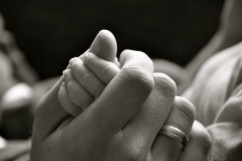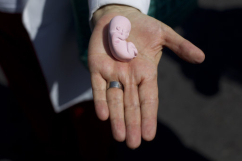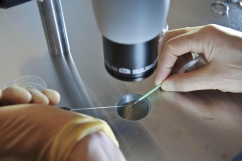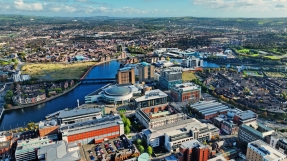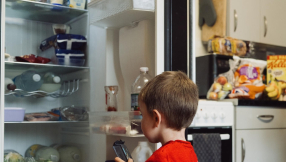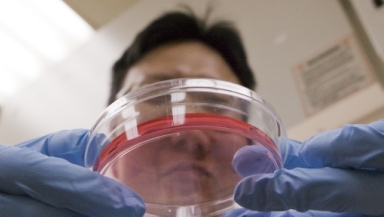
MPs and members of the public have been voicing their concerns about the proposed creation of 'three parent' embryos, which the Government is said to want to push through parliament this autumn.
Earlier this year the Government published proposals to move ahead with 'three parent' embryos, despite the Human Fertilisation and Embryology Authority stating that more research is required before steps are taken.
Campaigners are concerned that the effects of the procedures on the babies produced are being ignored, as well as the fact that the proposed legislation will be in a format that will have weaker scrutiny than usual.
In a debate this week, Conservative MP Fiona Bruce told the House of Commons that there was scientific evidence of chromosomal abnormalities in embryos produced by this technique, and that the UK Government should not approve it until further research had been carried out. The issue relates to the transfer of DNA into an embryo from a different person's mitochondria, the energy factories of human cells.
"Two peer-reviewed articles in Nature have suggested that mitochondrial transfer is inherently risky, one of them citing a figure of 52 per cent of embryos created through MST having chromosomal abnormalities," she told the House of Commons. "More research ought to be undertaken and a full assessment conducted of the potential risk to children born as a result."
There are fears that the proposals could open the door to further genetic engineering of human beings. "Monday's debate was about safety, but there are other Christian concerns that extend beyond safety, and relate to the ethics of what's being proposed," Christian charity CARE spokesman Dan Boucher told Christian Today. "Britain would be the first country in the world to allow this procedure, which involves the deliberate genetic engineering of a human. Because of this considerable opposition has been expressed not just in this country but also abroad."
Other MPs who spoke against the proposals were Labour MP Robert Flello, Tory David Burrowes and Labour MP Jim Dobbin.
As well as the politicians and Christian groups who are against the draft legislation, it appears that the public are increasingly opposed to the idea too. A ComRes poll commissioned by CARE found that fewer than one in five people support the creation of three parent babies. This was a significant drop compared to a poll earlier in the year.
"There has been a dramatic shift from wafer thin support in February to clear opposition in August, with just 18 per cent now in favour compared to as much as 55 per cent against," said Labour MP Flello, who was a co-sponsor of the debate.
Those who support the practice say it will reduce the number of people born with diseases related to mitochondrial DNA.
"This is an incredibly difficult issue, with emotive arguments being used as to why we must change the law," said Nola Leach, chief executive of CARE. "The problem is that the scientific evidence does not support the change. That is why top geneticists like Professor Stuart Newman, Professor of Cell Biology and Anatomy at New York Medical College has described the genetically modifying children as 'inherently unsafe'.
"Now we see that the public does not support changing the law either and are concerned about the Government's motives behind wanting to change the law. They are worried that patient safety would be compromised for the sake of claiming a world first.
"It is vital the Government gets this right and that means listen to the evidence including the very serious ethical issues before rushing into a decision."










